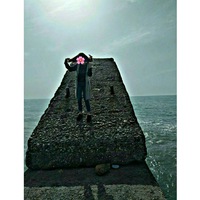
Вопрос задан 24.02.2019 в 22:53.
Предмет Химия.
Спрашивает Кабалюк Вітя.
Na H2O---->x->Mg(OH)2->MgO->MgCl2
 0
0
 0
0
Ответы на вопрос
 Внимание! Ответы на вопросы дают живые люди. Они могут содержать ошибочную информацию, заблуждения, а также ответы могут быть сгенерированы нейросетями. Будьте внимательны. Если вы уверены, что ответ неверный, нажмите кнопку "Пожаловаться" под ответом.
Внимание! Ответы на вопросы дают живые люди. Они могут содержать ошибочную информацию, заблуждения, а также ответы могут быть сгенерированы нейросетями. Будьте внимательны. Если вы уверены, что ответ неверный, нажмите кнопку "Пожаловаться" под ответом.

Отвечает Матевосян Эсмеральда.
Думаю что это оксид магния MgO
 0
0
 0
0

Отвечает нейросеть ChatGpt. Будьте внимательны, ответы нейросети могут содержать ошибочные или выдуманные данные.
The given chemical equation shows a series of reactions starting with water (H2O) and ending with magnesium chloride (MgCl2). Let's break down each step of the reaction and explain what happens.
Reaction 1: Na + H2O -> Mg(OH)2
In the first step, sodium (Na) reacts with water (H2O) to form magnesium hydroxide (Mg(OH)2). This reaction involves the displacement of hydrogen from water by sodium. The sodium replaces the hydrogen in water, resulting in the formation of magnesium hydroxide.Reaction 2: Mg(OH)2 -> MgO
In the second step, magnesium hydroxide (Mg(OH)2) decomposes to form magnesium oxide (MgO). This reaction occurs when heat is applied to magnesium hydroxide, causing it to break down into magnesium oxide and water vapor.Reaction 3: MgO -> MgCl2
In the final step, magnesium oxide (MgO) reacts with hydrochloric acid (HCl) to form magnesium chloride (MgCl2). This reaction is an acid-base reaction, where the hydrochloric acid donates a proton (H+) to the magnesium oxide, resulting in the formation of magnesium chloride.Please note that the given chemical equation does not provide specific details about the reaction conditions, such as temperature, pressure, or concentration. These factors can influence the reaction rates and outcomes.
I hope this explanation helps! Let me know if you have any further questions.
 0
0
 0
0
Топ вопросов за вчера в категории Химия
Последние заданные вопросы в категории Химия
Предметы
-
Математика
-
Литература
-
Алгебра
-
Русский язык
-
Геометрия
-
Английский язык
-
Химия
-
Физика
-
Биология
-
Другие предметы
-
История
-
Обществознание
-
Окружающий мир
-
География
-
Українська мова
-
Информатика
-
Українська література
-
Қазақ тiлi
-
Экономика
-
Музыка
-
Право
-
Беларуская мова
-
Французский язык
-
Немецкий язык
-
МХК
-
ОБЖ
-
Психология
-
Физкультура и спорт
-
Астрономия
-
Кыргыз тили
-
Оʻzbek tili




















